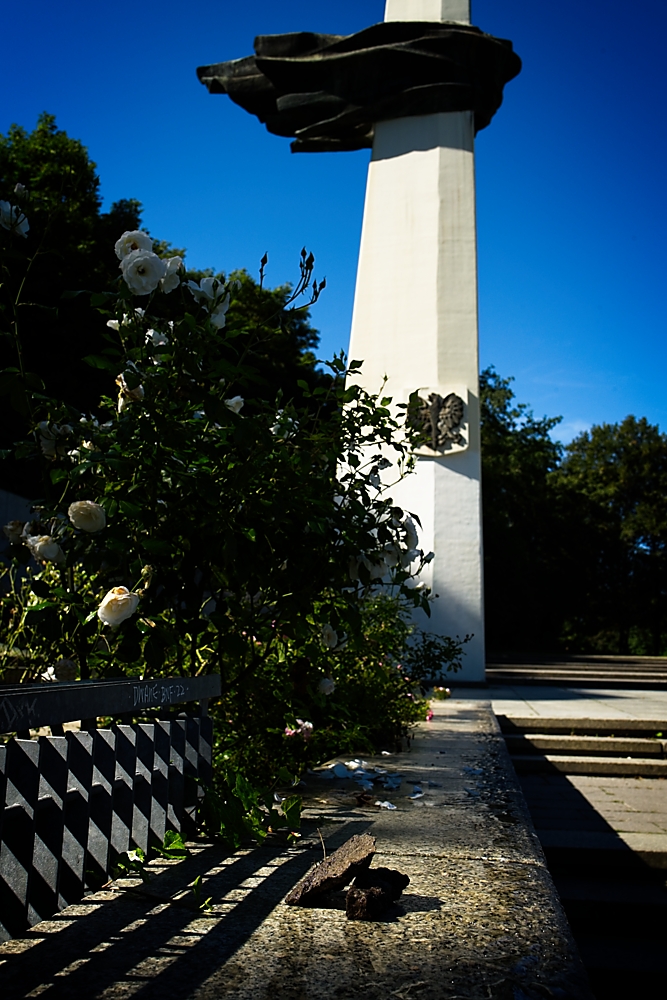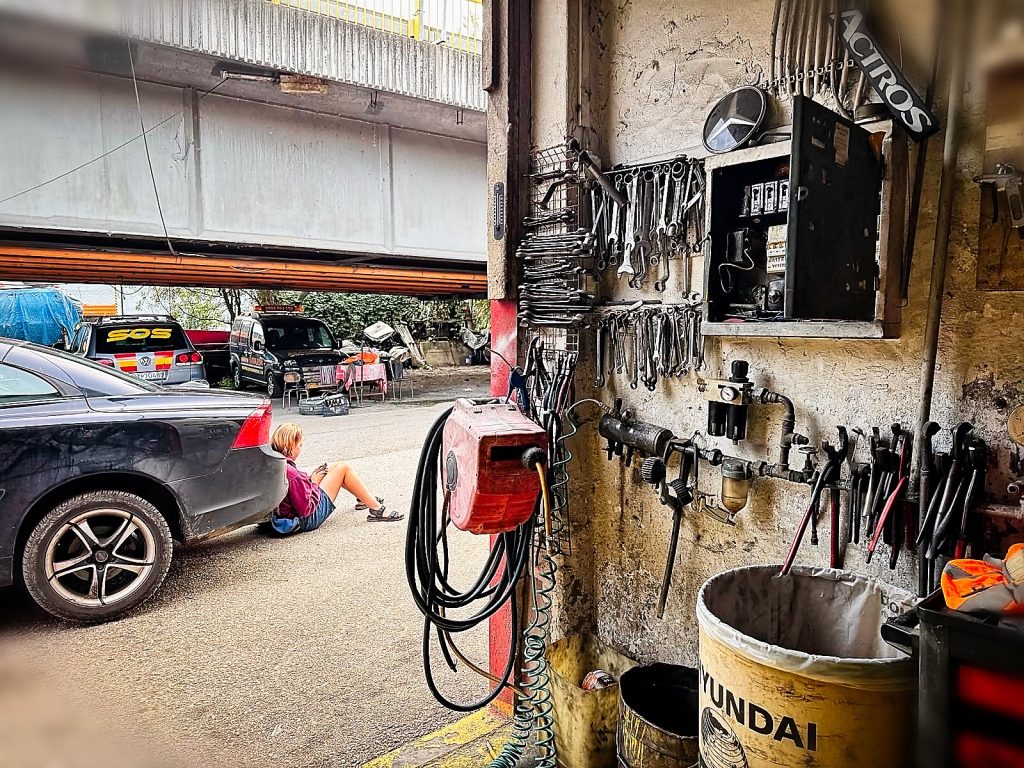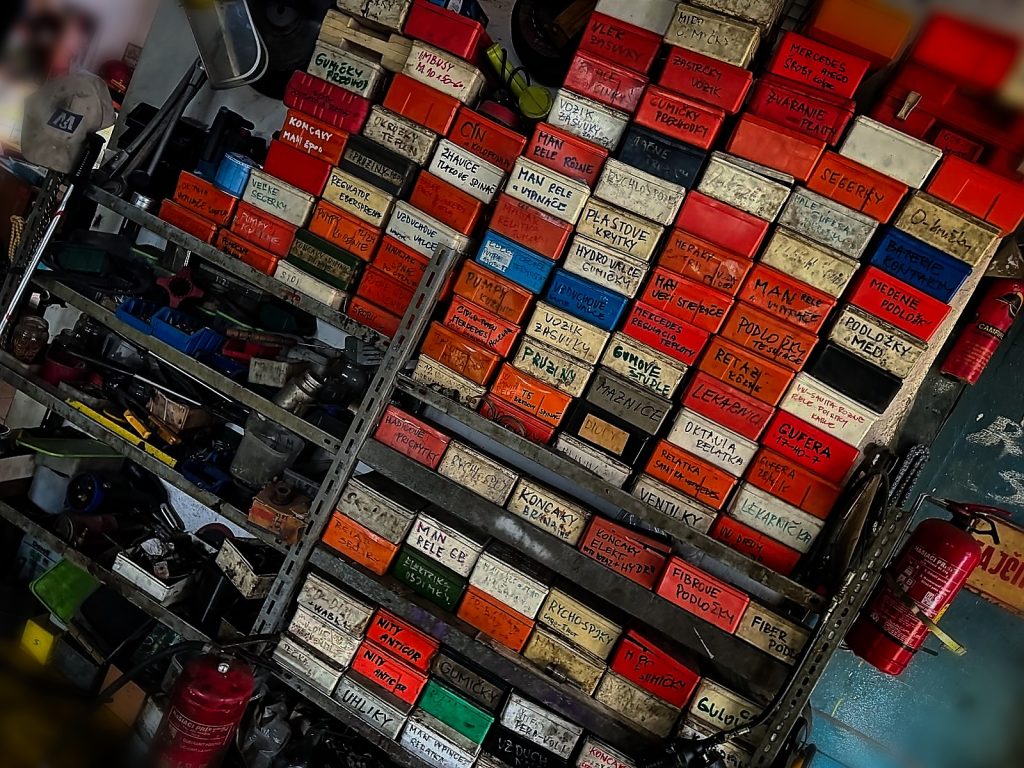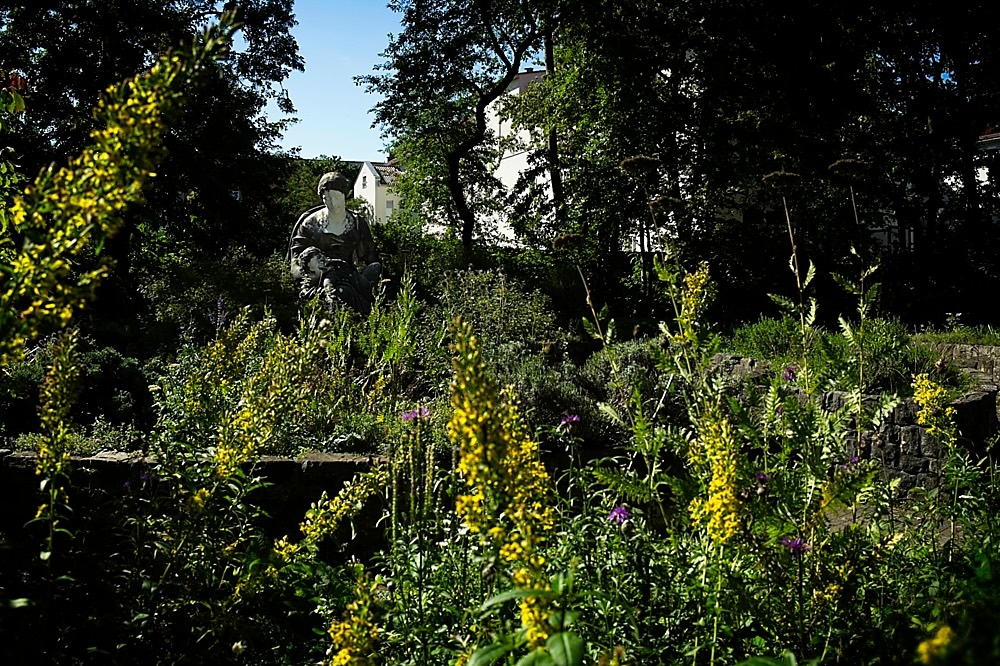
Short story
Early on a September morning, Lior cuts through Volkspark Friedrichshain on his way to Ding Dong Ping Pong. The air carries the scent of rain on stone, and faintly, children’s laughter drifts between the trees. Sunlight brushes lightly over leaves and flowers, promising another warm day.
He slows his pace at the fragrance garden, where a statue of a mother and child stands watch. Passing through the gate, Lior pauses to admire Edmund Gomansky’s 1898 sculpture. Around him, the garden hums with life — hungry insects busy themselves among the flowers, making the most of summer’s final days.
Family Ties
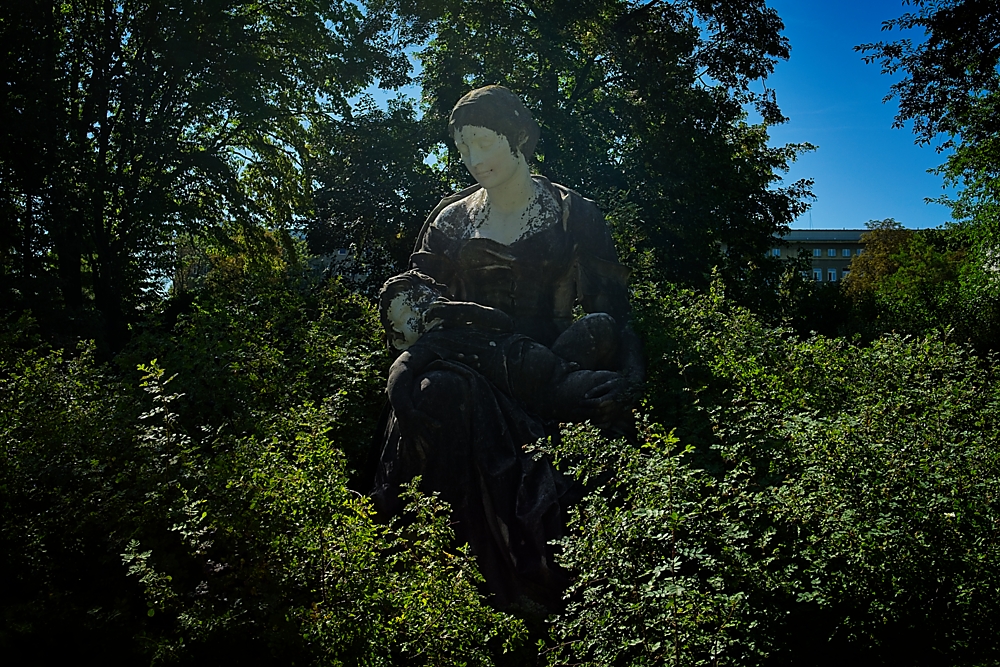
The statue makes Lior think of his own mother, and of her mother before her. And then of the darker stories about his great-grandmother and her parents. In 1898 that side of the family lived in Kolonia Yakovleva, in what is now Belarus but was then part of the vast Russian Empire. These rural villages, the kolonii, were created by the Tsarist government to cultivate the borderlands. They were self-sustaining settlements. Built on shared ownership and equality, a pioneering model quite unlike the better-known market towns, or shtetls — places like “Anatevka” from Fiddler on the Roof — which thrived on trade, culture, and religion. From the early 1900s, this idea of communal settlement was echoed in the Jewish Kibbutzim in Ottoman, later British-controlled Palestine, and eventually in Israel.
Twentieth century
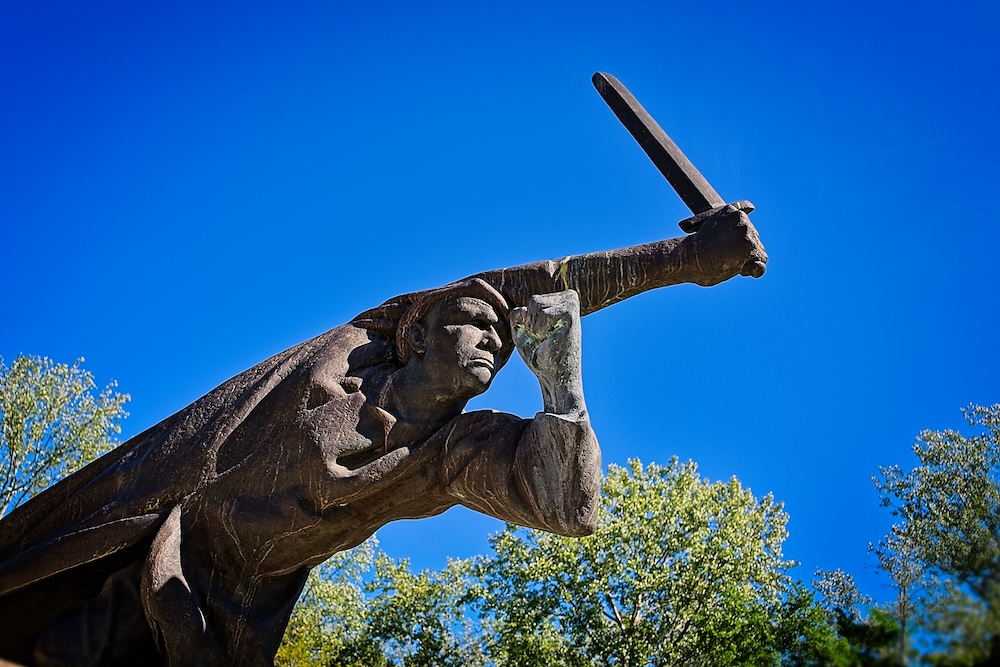
When the October Revolution erupted in 1917, Lior’s family sided with the Bolsheviks, drawn by the promise of equality and an end to antisemitism. They believed deeply in socialist ideals, and several even volunteered in the International Brigades, fighting against Franco’s fascists in Spain between 1936 and 1939.
It had been a rough path — marked by Tsarist violence, by war, by loss. The family’s story was one of resilience, but also of wounds that had never fully healed.
Rocky road
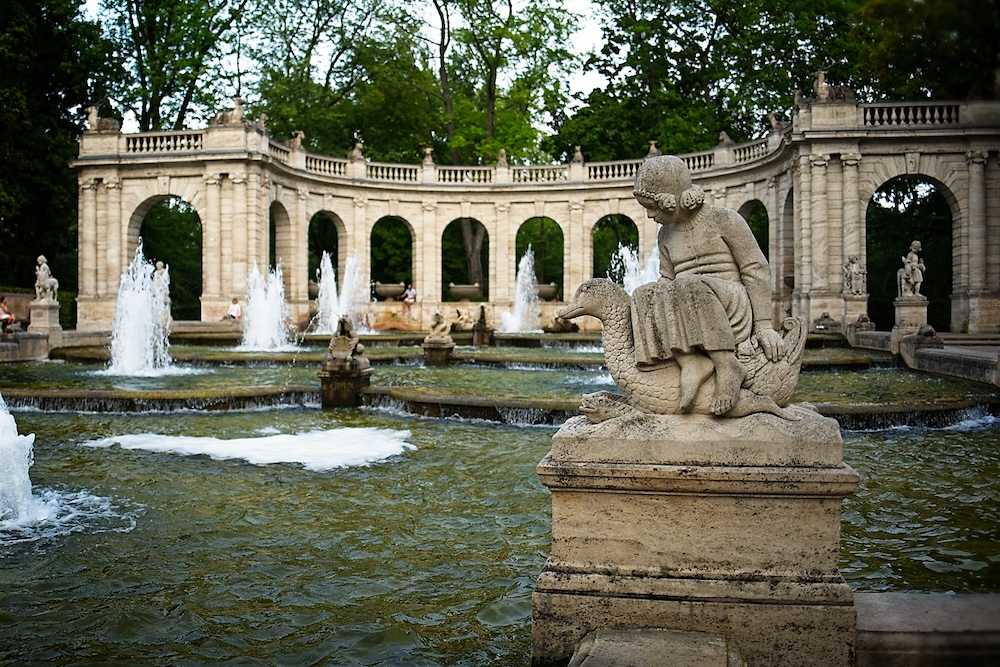
From the fairy-tale fountain, Lior continues his walk uphill. He knows he is quite literally climbing over the remnants of the Second World War. The hill beneath him is made of bunkers so solid that even the Red Army could not destroy them. Instead, they were simply buried under earth. Pausing, he glances down and notices two small rocks at the path’s edge. He bends to pick them up.
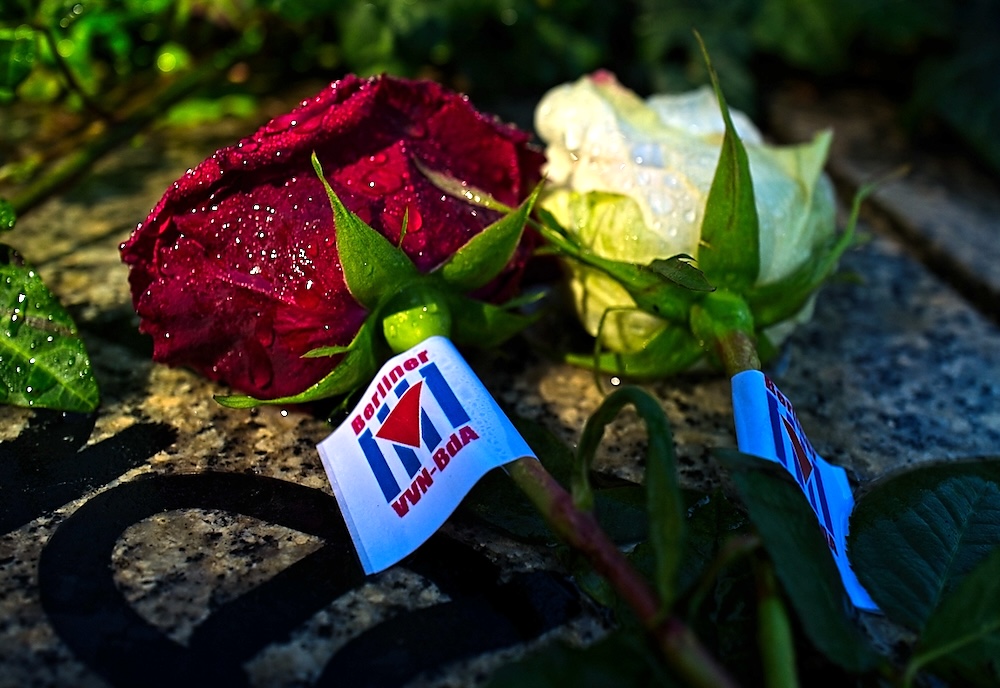
A few minutes later, Lior lowers himself onto the steps of the Memorial to Polish Soldiers and German Anti-Fascists. Fresh flowers rest there, left by the Association of Persecutees of the Nazi Regime – Federation of Antifascists. For a moment he studies them in silence, then sets the two small rocks gently on the monument.
For a while, Lior simply sits there. Between past and present, between stone and bloom. Grateful for the way Berlin always carried its memory not as a burden, but as a companion on a beautiful day.
